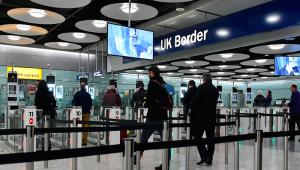McDonnell told the Labour party conference in Liverpool today that for too long, major decisions about what and where to invest have been taken by Whitehall and the City.
“The result has been underinvestment and decline across the country,” he told delegates.
“It’s time for our regions and localities to take back control. So we will create new institutions, not run by the old elite circles.”
The shadow chancellor told delegates that as well as ending the current government’s austerity programme, Labour would also create an alternative through rewriting the rules of the economy.
Regional development banks would be established with a mandate to supply finance to local economies. Meanwhile, a £250bn National Investment Bank would pay for infrastructure improvements and provide long term finance for businesses.
“It’s a disgrace that our small businesses can’t get the finance they need to grow,” McDonnell stated. “Our financial system is letting them down badly. The new regional development banks will have a mandate to provide the patient, long-term investment they need.”
He said that the £250bn investment programme also reflected the scale of investment needed to bring Britain’s infrastructure into the 21st century, and would ensure that no community was left behind economically.
“It means putting the investment in place that will transform our energy system, providing cheap, low-carbon electricity. It means ensuring every part of the country has access to superfast broadband, matching the best in the world. It means delivering the transport improvements, including HS3 in the north of England, that will unlock the potential of our whole country,” he said.
Responding to the announcement, Centre for Cities chief executive Alexandra Jones said that McDonnell was right to call for places across the country to be given more powers and control to grow their economies and attract investment.
However, she said the best way for Labour to support this was by giving its full backing to the new metro mayors due to be introduced in England’s biggest city regions next year. Devolution deals, which include that post, have already been agreed for several key regions – in Greater Manchester, Sheffield, Birmingham and Liverpool and the Tees Valley – although a deal for the North East Combined Authority was recently rejected by four of the seven councils involved.
“Rather than creating multiple new institutions to support devolution in those city regions, Labour should argue for the new mayors to be given the full range of powers and funding they need to address the issues that matter most to jobs and economic growth,” Jones stated.
Also in his speech, McDonnell said a future Labour government would plan to double the size of the cooperative and worker-owned sector in the economy.
Highlighting that Theresa May had spoken about worker representation on boards, he said that when workers own and manage their companies, those businesses last longer and are more productive.
New powers would include a workforce “Right to Own”, giving staff first refusal on a proposal for worker ownership, when their company faces a change of ownership or closure.
“If we want patient, long-term investment, and high-quality firms, what better way to do it than give employees themselves a clear stake in both? Co-operation and collaboration is how the emerging economy of the future functions.
“So the next Labour government will promote a renaissance in co-operative and worker ownership. The new regional development banks will be tasked with supplying the capital a new generation of business owners will need to succeed.”




















